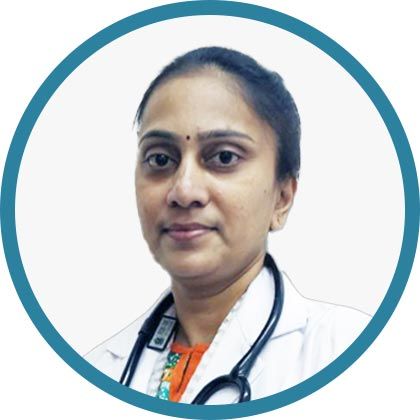Hospital Acquired Infections Explained
Learn what hospital-acquired infections (HAIs) are, how they occur, common symptoms and who is at risk. Understand prevention strategies, treatment options, and when to seek help.


Introduction
When you or a loved one is admitted to a hospital, the last thing you expect is to get sick from an infection. Unfortunately, hospital-acquired infections (HAIs), also known as nosocomial infections, can happen. These infections occur during a hospital stay and can sometimes lead to serious complications.
If you're worried about HAIs or want to learn how to reduce the risk, this guide will help you understand what they are, why they happen, and how you can stay safe.
What Are Hospital-Acquired Infections (HAIs)?
Hospital-acquired infections are infections that patients develop after being admitted to a hospital or healthcare facility. These infections are not present at the time of admission but occur 48 hours or more after hospitalization.
HAIs can affect different parts of the body, including:
Urinary tract (UTIs) – Often linked to catheters.
Surgical wounds – Infections at the site of surgery.
Lungs (Pneumonia) – Common in patients on ventilators.
Bloodstream (Sepsis) – Often due to IV lines.
These infections can be caused by bacteria, viruses, or fungi, some of which may be resistant to common antibiotics.
Consult a Top Infectious Disease Specialist for the best advice
Why Do Hospital-Acquired Infections Happen?
Hospitals are places where many sick people are treated, making them high-risk environments for infections. Some common reasons HAIs occur include:
1. Weakened Immune Systems – Patients who are already ill or recovering from surgery have weaker defenses against germs.
2. Medical Devices – Catheters, ventilators, and IV lines can introduce bacteria into the body.
3. Poor Hand Hygiene – Doctors, nurses, and visitors can spread germs if they don’t wash hands properly.
4. Overuse of Antibiotics – Some bacteria become resistant, making infections harder to treat.
5. Crowded Hospitals – More patients mean higher chances of infections spreading.
Common Symptoms of HAIs
If you or a family member is in the hospital, watch for these signs of an infection:
Fever or chills
Redness, swelling, or pain around a wound or IV site
Coughing or difficulty breathing (possible pneumonia)
Burning sensation while urinating (UTI symptom)
Unusual discharge or foul odor from a wound
If you notice any of these symptoms, inform a healthcare provider immediately. Early treatment can prevent complications.
How Can You Reduce the Risk of HAIs?
While hospitals follow strict hygiene protocols, patients and visitors can also take steps to stay safe:
For Patients:
Ask about hand hygiene – Ensure doctors and nurses wash hands or use sanitizer before touching you.
Keep wounds clean and dry – Follow post-surgery care instructions carefully.
Ask if catheters or IVs are necessary – The longer they stay in, the higher the infection risk.
Take antibiotics as prescribed – Never stop or misuse them, as this can lead to resistance.
For Visitors:
Wash hands before and after visiting – Use soap or sanitizer.
Stay home if sick – Avoid visiting if you have a cold, flu, or infection.
Don’t touch medical equipment – Let healthcare staff handle IVs, catheters, or bandages.
Treatment for Hospital-Acquired Infections
If an HAI occurs, doctors will:
Identify the germ through lab tests.
Prescribe the right antibiotics or antifungals (if needed).
Remove or replace infected devices (like catheters).
Monitor recovery closely to prevent complications.
Some infections, like MRSA (antibiotic-resistant staph), require special care.
When to Seek Help
If you suspect an infection after leaving the hospital, contact your doctor if you experience:
High fever or severe pain
Worsening redness/swelling around a wound
Difficulty breathing
Confusion or extreme fatigue
Early treatment is crucial to prevent serious complications like sepsis (a life-threatening infection response).
Final Thoughts
Hospital-acquired infections are a serious concern, but awareness and preventive steps can greatly reduce risks. Always speak up if you notice lapses in hygiene, and follow medical advice carefully.
Consult a Top Infectious Disease Specialist for the best advice
Consult a Top Infectious Disease Specialist for the best advice

Dr Vishwa Vijeth K.
Pulmonology Respiratory Medicine Specialist
8 Years • MBBS, MD ( Respiratory Medicine)
Bangalore
Apollo Clinic Bellandur, Bangalore

Dr. Krishna Ramanathan
Ent Specialist
10 Years • MBBS DNB
Bengaluru
Apollo Clinic, JP nagar, Bengaluru
Dr. Preeti Kathail
General Physician/ Internal Medicine Specialist
17 Years • MBBS, PGDHHM
Bangalore
Apollo Clinic Bellandur, Bangalore
(25+ Patients)

Dr. Jyothi Rajesh
Obstetrician and Gynaecologist
22 Years • MBBS, DGO(DNB)
Bangalore
Apollo Clinic Bellandur, Bangalore

Dr. Navin Jain
Paediatrician
30 Years • MBBS, DCH (Diploma in Child Health)
Bangalore
Apollo Clinic Bellandur, Bangalore



.webp)
